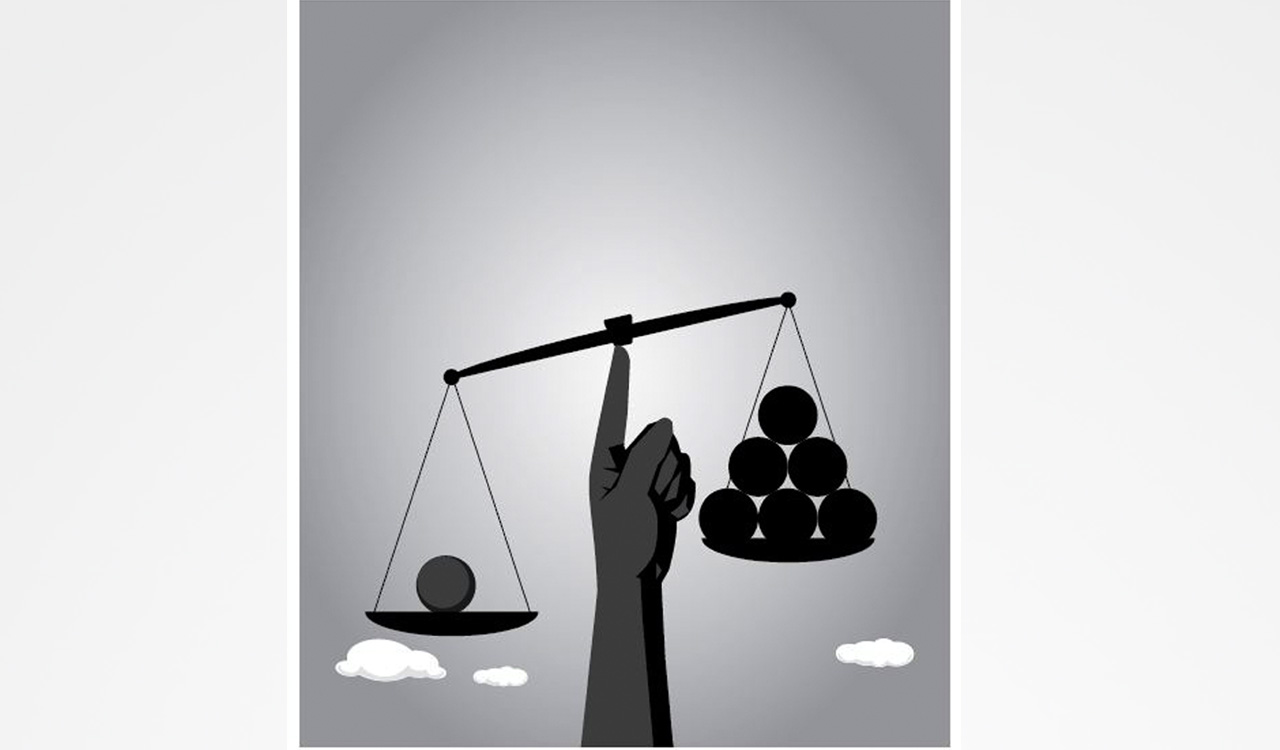Opinion: Collegium Vs Commission
Discourse on the binary misses out on the broader context of democracy and the role of judiciary in it
Published Date – 12:45 AM, Thu – 29 December 22

By Nayakara Veeresha
The tussle between the Judiciary and the Executive has resurrected the debate on the subject of judicial appointments in the country. The heated exchange of views and counter-views has attracted global attention, especially among legal luminaries. The conflict is not just on the aspects of the method of judges’ appointment, but it is more on bringing transparency and accountability to the existing (collegium) or proposed system (NJAC). The current discourse on the binary classification — collegium Vs commission — appears to miss out on the broader context of democracy and the role of the judiciary in it.
The Constitution of India, unlike the US, adopted a flexible approach with regard to the separation of powers among and between the different organs of the state. In Asif Hameed v. State of Jammu and Kashmir reported in AIR 1989 S.C. 1899, the Supreme Court observed that
Although the doctrine of separation of powers has not been recognised under the Constitution in its absolute rigidity but the Constitution makers have meticulously defined the functions of various organs of the State… No organ can usurp the functions assigned to another…The functioning of democracy depends upon the strength and independence of each of its organs…
The question of parliamentary sovereignty or legislative supremacy is a recent addition to the discourse notwithstanding the well-settled democratic principle and practice of independence of the judiciary.
Institutional Interaction
Understanding the interplay between the legislature and judiciary is crucial from a democratic point of view. Delineating the dynamics and subtleties of this interplay is essential to understand the institutional interaction in a functional democracy. The relationship between the two variables in a structure-function framework is vital to explain the processes underlying this tussle between the two organs of the state. Understanding the dialectical interaction between the different organs of the government is critical for the healthy functioning of democracy. No institution of governance in a democracy is immune from critique as people are sovereign and the sole source of legitimacy. Given this backdrop, the collegium system is law of the land and draws legitimacy from the judicial pronouncements.
However, our Constitution makers were conscious of these futuristic developments and hence kept open almost all the institutions for further growth or reforms. The continued Amendment Acts to the Constitution are evidence of this testimony. While arguing the case of Griswold v. Connecticut, 381 U.S. 479, 501 (1965), Justice Harlan expressed the need for judicial self-restraint,
“Specific” provisions of the Constitution, no less than “due process” lend themselves as readily to personal interpretations by judges whose constitutional outlook is simple to keep the Constitution in supposed “tune with the times”….
Unaccountable Independence
Be it NJAC or reforms in the collegium system, the discourse around these aspects is to ensure the due process and, more so, institutional arrangements or mechanisms to the due process of law, especially judiciary. It is true that the Constitution provides a governing framework for the country. However, it is the politics which determines the form, shape and direction of the governance. Judiciary is a constituent part of the whole institutional arrangements of governance. The disapproval of the top court in providing an opportunity to the proposed NJAC is a significant factor wherein the issues of transparency and accountability got subsumed while giving primacy to judicial independency through an extra-constitutional collegium system.
Recognising the primacy of the collegium system over the appointment commission consisting of the ruling and opposition leaders, including civil society members, the court has avoided the logical questions of democratic representation, robustness of the system and modalities of functioning. A common citizenry wonders how come the Supreme Court missed out to include a democratic voice and representation which is reasonable for the health of democracy. The behaviour and conduct in disapproving of the NJAC can be attributed to the undemocratic attitude and approach to governance reforms. Even in the majority verdict in the case of NJAC, the judges have pointed out the need for transparency and accountability of the collegium system and its functioning.
The succumbing pressures of majoritarian politics and the fear of losing the institutional legitimacy as a justice-delivering agency, the court in this case is unable to meet the constitutional obligations (law) and organisational objective (justice). This amounts to questioning the will and sovereignty of Parliament in the arena of legislative competency. Seen in the context of the democratic governance framework, the court’s backstepping in the NJAC verdict augments democratic regression thereby contributing to the corrosion of Montesquieu’s doctrine of separation of powers. Democratic regression begins when any of the organs of the state tries to turn towards authoritative or arbitrary governance thereby deepening what can be termed as a policy crisis or governance failure as pointed out by the top court in several cases.
Self-restraint Judiciary
Highlighting the need for a self-restraint judiciaryFrankfurter, J of the US Supreme Court in the case of Trop v. Dulles, 356 US 86 observes that
It must observe a fastidious regard for limitations on its own power, and this precludes the Court’s giving effect to its own notions of what is wise or politic. That self-restraint is of the essence in the observance of the judicial oath, for the Constitution has not authorized the judges to sit in judgment on the wisdom of what Congress and the Executive Branch do.
Democracy and governance are the two sides of the same coin. There is a need for strengthening democracy to improve the governance outcome rather than contracting the same. Any institution in a democracy must be open to reforms or changes in accordance with the times. This is much more evident in the Indian socio-political context wherein the separation of powers is very thin. Each organ of the state must try to ensure and imbibe democratic content and rigour into each arm to enable the robustness of democracy.

(PhD Fellow in Political Science, Institute for Social and Economic Change, Bengaluru. Views are personal)